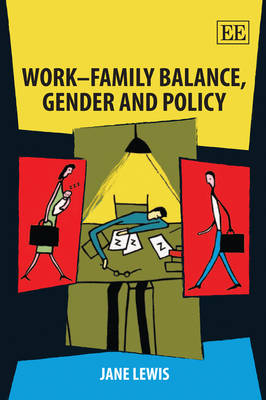Combining paid work with caring for children has become more difficult for families as women's working hours have increased. Over the past decade the issue of work-family balance has reached a more prominent place on the policy agenda of many Western European countries. However the preoccupations of governments have been largely instrumental, focusing particularly on the goal of increasing female employment rates in order to achieve greater competitiveness and economic growth, and also in many countries on raising fertility rates and promoting children's early learning.
This important book looks at the three main components of work-family policy packages - childcare services, flexible working patterns and entitlements to leave from work in order to care - across EU15 Member States, with comparative reference to the US. It also provides an in-depth examination of developments in the UK. Variations in national priorities, policy instruments, established policy orientations and the context for policy making in terms of employment patterns, fertility behaviour and attitudes towards work and care are highlighted.
Gender inequalities in the division of paid and unpaid work underpin the whole issue of work-family balance. But what constitutes gender equality in this crucial policy field? Jane Lewis argues that in spite of growing political emphasis on the importance of 'choice', a 'real' choice to engage in either or both the socially necessary activities of paid and unpaid work has remained elusive.
Work-Family Balance, Gender and Policy is essential reading for students and scholars who wish to understand the complex challenges facing families and family policy and the opportunities for the future.
- ISBN10 1848442114
- ISBN13 9781848442115
- Publish Date 31 March 2009
- Publish Status Active
- Publish Country GB
- Imprint Edward Elgar Publishing Ltd
- Format Hardcover
- Pages 264
- Language English
